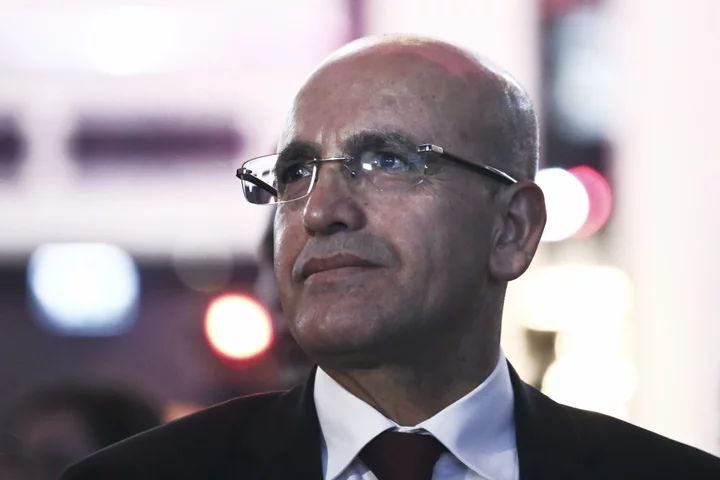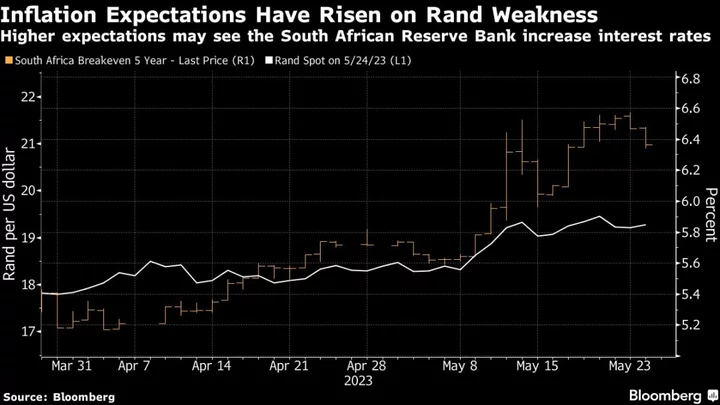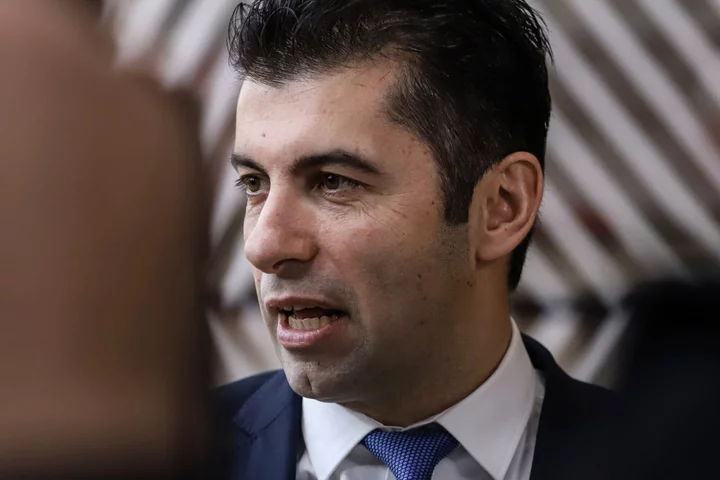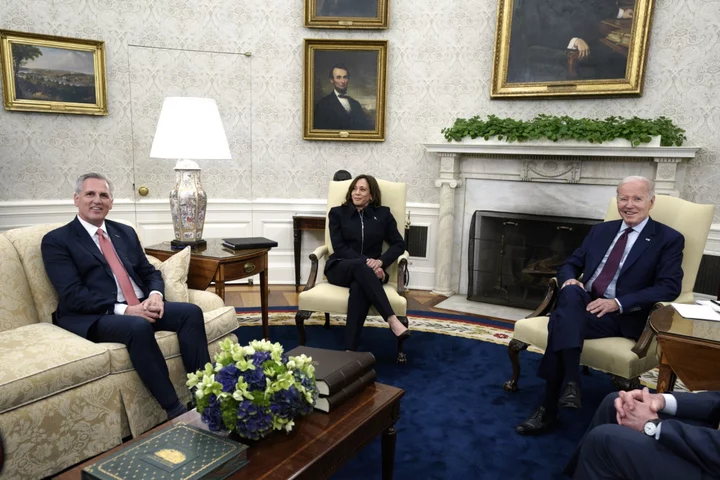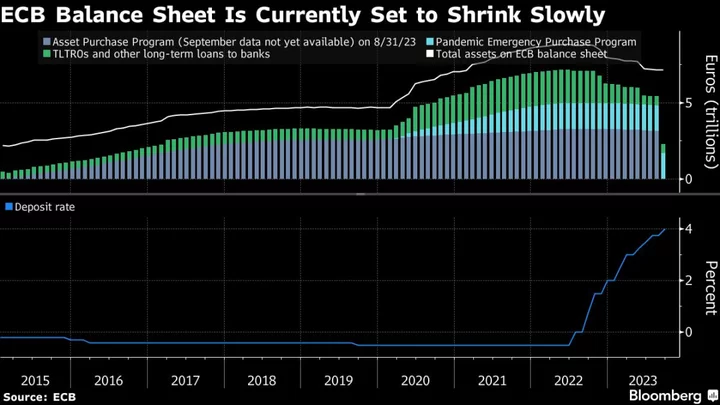Turkish President Recep Tayyip Erdogan will appoint Mehmet Simsek as his new treasury and finance minister, according to people with direct knowledge of the matter, bringing back an advocate of conventional economics to shore up market confidence after elections.
Simsek, 56, is expected to normalize economic policies after Turkey has for years pursued an unconventional approach that resulted in runaway inflation, the people said, asking not to be identified citing sensitivity of the matter.
Erdogan, known for intervening heavily in monetary policy and firing officials who don’t toe the line, will need to give Simsek enough autonomy to convince observers the shift is more than window-dressing. The president won re-election on Sunday to extend his more than two decades in power.
Turkish stocks jumped on the news, with the banking index opening 6.6% higher in Istanbul. The cost of insuring against a sovereign default dipped while the yield on Turkey’s 10-year dollar bond fell to 9.32%, the lowest level since May 12.
The lira was trading 0.3% weaker against the dollar as of 9:57 a.m. in Istanbul as traders weighed the possibility of an end to back-door state interventions in the currency market.
Erdogan’s office and a spokesperson for Simsek both declined to comment. The president will announce his new government on Saturday.
Investors have been on edge since Erdogan cruised to victory in a presidential runoff on May 28, with the lira falling to fresh record lows. In his speech after the ballot, Erdogan pledged to install “a finance team with international credibility.”
Policy Autonomy
Simsek, a former Merrill Lynch strategist respected by investors for his defense of orthodox economic views, fits the bill for Erdogan.
He’s already a familiar name for the Turkish leader, working as both a finance minister and deputy prime minister in past Erdogan cabinets. Simsek stepped down in 2018 during Turkey’s transition to an executive presidential system that gave Erdogan sweeping powers.
Simsek rebuffed overtures from Erdogan earlier this year and said he wouldn’t take part in active politics. After Sunday’s election victory, they met again, with Simsek asking for autonomy in monetary policy as a precondition to joining the cabinet, according to the people familiar with the matter.
Separately, Devlet Bahceli, the head of a Turkish nationalist party that’s a key part of Erdogan’s ruling coalition, lobbied for Simsek’s inclusion, the people said.
Skepticism Remains
Even if Simsek secures the autonomy he needs to fix the nation’s finances after years of unorthodox policies, doubts about Erdogan’s patience remain.
The president is adamant that lower interest rates curb inflation, an idea that runs directly counter to how most central banks devise policies. Naci Agbal, the last orthodox central banker to serve under Erdogan, was sacked in 2021, just four months into the job, for raising rates aggressively.
The manner of Agbal’s ouster and the return to ultra-low rates under his successor, Sahap Kavcioglu, are a reminder for skeptics who question how long any adjustment under Simsek might continue.
“Market friendly and well respected by investors, Simsek is a ray of hope that at least some unorthodox policies will be reversed,” said Piotr Matys, senior currency analyst at In Touch Capital Markets Ltd. But “those who have such a view should perhaps ask themselves: how long will such a U-turn last and who really runs the show in Turkey?”
Simsek’s Past
Even with Simsek at the helm before 2018, Turkey wasn’t aggressively pursuing its official inflation target of 5%. Annual price gains were at just under 12% at the end of 2017.
Yet Simsek’s administration managed to keep Turkey’s economy growing at a pace that would appease Erdogan without stoking runaway inflation.
Since Simsek’s departure, consumer prices spiraled out of control after consecutive currency crises, with inflation topping 85% last year nationally before a slowdown thanks to statistical effects. It’s still above 40%.
In his final cabinet stint, Simsek made frequent trips to London with then central bank Governor Murat Cetinkaya. They tried to soothe investors’ concerns over Erdogan’s ambitions to take greater control of economic policy, which were causing the lira to nosedive.
Simsek will replace Nureddin Nebati, who’s been finance minister since late 2021. Nebati, previously a deputy finance minister, was perceived to be close to former economy czar Berat Albayrak, a son-in-law of Erdogan.
--With assistance from Beril Akman, Kerim Karakaya, Cagan Koc, Asli Kandemir and Tugce Ozsoy.
(Updates with more details on Simsek from seventh paragraph.)

